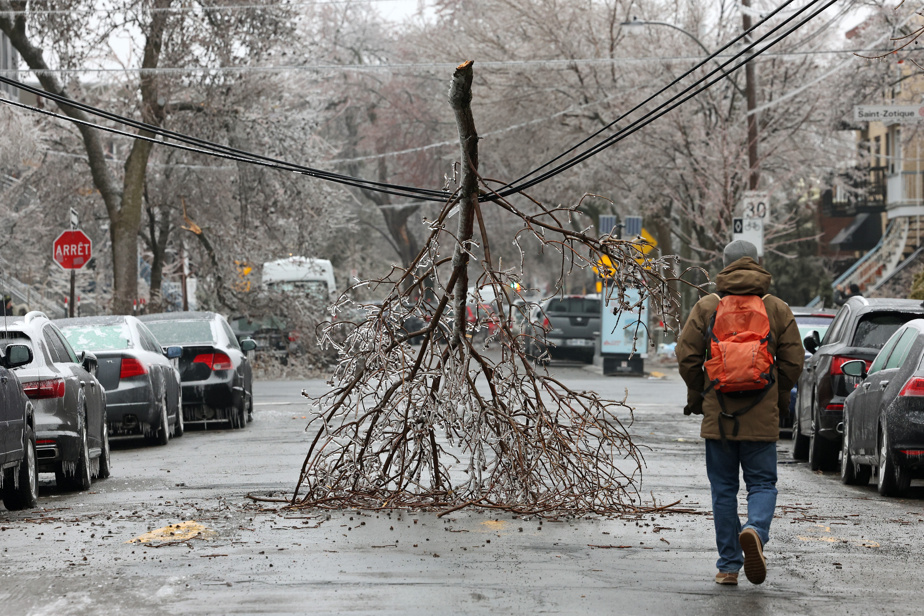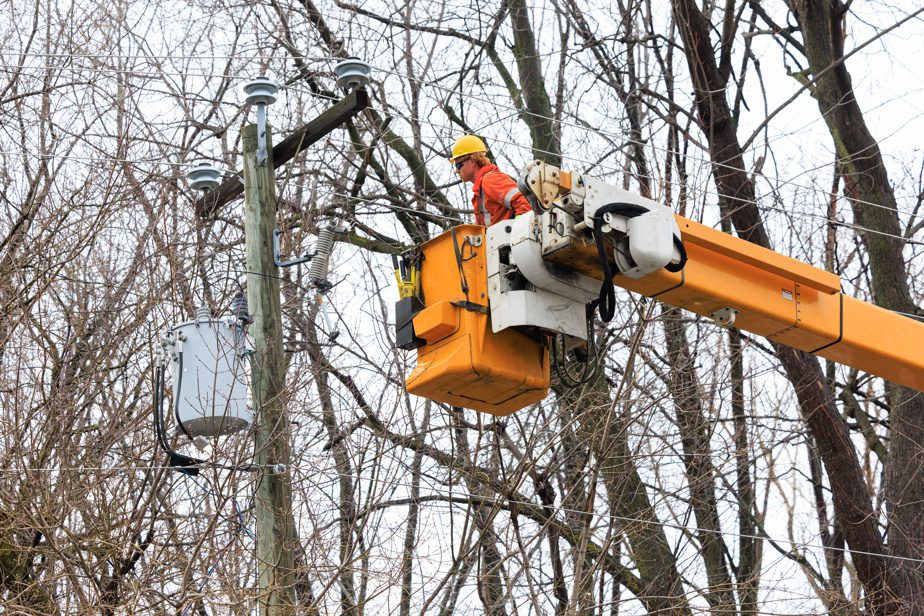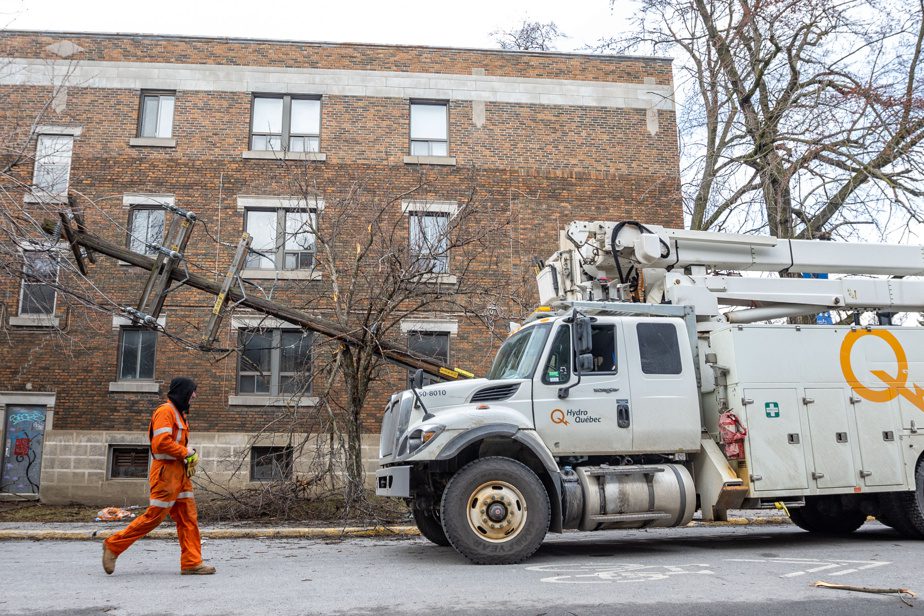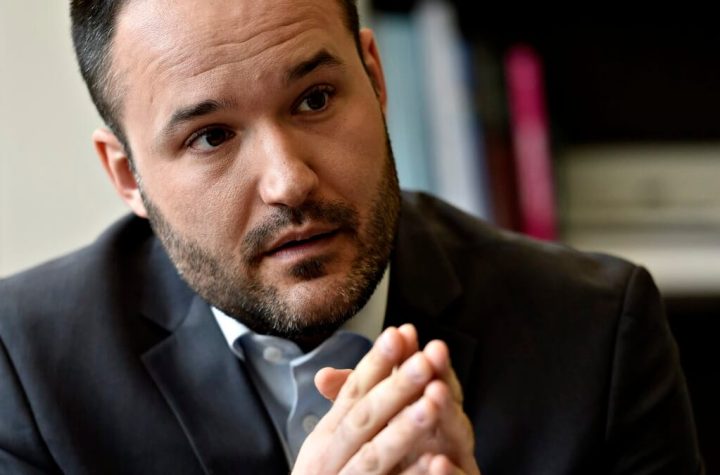
100 billion
Premier Francois Legault recently said $100 billion will be needed to bury power lines in Quebec.
Dense surroundings

Photo by Dominic Gravel, Law Press Archives
View of Montreal from Camilleon-Houd Lookout, April 6. The metropolis has been badly affected by the recent heavy blackouts.
For Normand Mousseau, professor of physics and scientific director of the Trottier Energy Institute at Polytechnique Montreal, the 100 billion figure “doesn’t mean anything” because “no one supports” the idea. “What’s desirable are targeted burials,” he says. For example, in the city or in the suburbs, in dense neighborhoods, we can do this. It costs a bit more, but it gives us a stronger network because blackouts in those places affect a lot more people than in rural areas. »
about 30%
This is the proportion of new Hydro-Québec customers supplied underground since 2008.
Source: Hydro-Québec
51
This is the number of projects to bury cable networks in places of heritage and cultural interest that have been undertaken or undertaken in 48 municipalities since the year 2000.
Source: Hydro-Québec
Opportunities lost

Photo by Hugo-Sebastian Aubert, La Presse Archives
A Hydro-Québec worker works to restore electricity in the Pointe-aux-Trembles district after the recent freezing rain cut off the power supply
The best time to bury wires is when the street needs to be rerouted. But Mr Mousso believes that opportunities are being missed due to a lack of coordination between cities and different services. “For the last ten years, Montreal has been redoing its aqueducts and its sewers. We’ve opened up the streets and the landfill costs would have gone down a lot, but we haven’t done that because nobody talks to each other. Every time we open up a street in Montreal or somewhere else […] We will. »
Save the trees

Photo by Alain Roberge, Law Press Archives
Normand Mousseau, Professor of Physics and Scientific Director of the Trottier Energy Institute at Polytechnique Montreal
The crisis caused by the 2023 blizzard will lead to an increase in tree felling in Montreal, which Normand Mousseau believes will “disfigure the city”. “Pruning is a short-term solution. We don’t bury wires overnight, but we do it bit by bit when possible. »
4106 kilometers in Montreal
In Montreal, according to Hydro-Québec, half of the distribution lines are underground, representing 4106 kilometers of distribution lines. In the province, this is the case for about 11% of the distribution lines. “More costly than an overhead network, burial is a decision for municipal or government authorities, not the electricity supplier,” Hydro-Québec said.
Smart networks

Photo by Josie Desmarais, Law Press Archives
On April 6, a power pole fell under the weight of snow on a street in Outremont
Over 100 years, electricity has evolved from a novelty phenomenon reserved for an elite to a service that permeates all aspects of life. The resilience of the network reflects this fact, notes Normand Mousseau.
“With upcoming smart grids, we are moving towards more decentralized generation. Electric cars can supply electricity to the network from time to time, or solar panels can… These networks are also a way to reduce risks, because if there is a local breakdown, we can get electricity from other sources. »
Ultimately, municipalities will have to decide whether to request the burying of wires in their territory in the new districts, and Quebec could accelerate the pace by making municipalities oblige. “If it increases the cost of connection, it will force us to have denser neighborhoods. But density, there are those who are fighting against it…”




